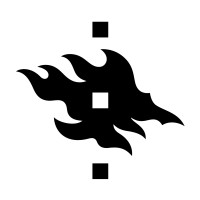Company Cyber Security Posture
NANA
NA Company Details
NA
NA
NA
NA
NA
NA
Scan still pending
NA
NA
Between 200 and 800
This score is AI-generated and less favored by cyber insurers, who prefer the TPRM score.
 NA Global Score
NA Global Score.png)

Company Scoring based on AI Models
| Model Name | Date | Description | Current Score Difference | Score |
|---|---|---|---|---|
| AVERAGE-Industry | 03-12-2025 | This score represents the average cybersecurity rating of companies already scanned within the same industry. It provides a benchmark to compare an individual company's security posture against its industry peers. | N/A | Between 200 and 800 |
Company Cyber Security News & History
| Entity | Type | Severity | Impact | Seen | Url ID | Details | View |
|---|
Company Subsidiaries

NA
Access Data Using Our API

Get company history
.png)
NA Cyber Security News
USF awarded NSF grant to build platform for hands-on cybersecurity education
The National Science Foundation has awarded nearly $268,000 to the University of South Florida for a collaborative research project designed ...
Exclusive | University of South Florida Gets $40 Million to Start Cyber and AI College
The University of South Florida will establish a college dedicated to cybersecurity and artificial intelligence, following the largest gift in ...
Historic $40M gift establishes Bellini College of Artificial Intelligence, Cybersecurity and Computing at USF, solidifying Tampa Bay as “Cyber Bay”
The new Bellini College will directly address the nation's urgent cybersecurity workforce shortage while equipping America's digital defenses ...
Bellini College of Artificial Intelligence, Cybersecurity and Computing will foster USF-wide collaborations
The Bellini College will produce job-ready professionals in the fields of artificial intelligence, cybersecurity and computing. It will also ...
USF Bellini College of Artificial Intelligence, Cybersecurity and Computing to ignite Tampa Bay’s tech talent
The Bellini College of Artificial Intelligence, Cybersecurity and Computing will serve as a launchpad for the next generation of interdisciplinary experts to ...
USF CyberHerd Team Dominates National Cybersecurity Competitions in 2024
The USF CyberHerd Team entered and won first or placed within the top three in eight prestigious national competitions.
Crying isn’t the only clue: USF researchers using AI to detect silent pain in newborns
Newborns in the NICU can't tell us when they're in pain, so a team of USF researchers is developing AI technology that can find out.
USF is helping bring AI to Pre-K-12 classrooms
To prepare students for an AI-driven world, USF is helping teachers in Tampa Bay and across the country integrate AI into their classrooms.
Top stories of USF's spring semester
Their final semester at USF was packed with milestone moments: a record-setting donation, multiple national championships and top-tier rankings that affirm the ...

NA Similar Companies

University of Helsinki
Working for the world Science has the power to change the world. Join one of the best research universities in the world – an international community united through bold thinking, science, research, and learning, with over 30,000 students and 8,000 employees. We are defined by our multidisciplina

Center of the American West, University of Colorado Boulder
The Center of the American West takes as its mission the creation of forums for the respectful exchange of ideas and perspectives in the pursuit of solutions to the region's difficulties. We at the Center believe that an understanding of the historical origins of the West's problems, an emphasis on

University of Pretoria
The University of Pretoria is a multi-faculty research-intensive university that has remained among the top South African universities in research output and impact. UP is also the top producer of graduates in the country. With campuses in Pretoria and its surrounds, as well as in the country’s econ

RMIT University
RMIT is a global university of technology, design and enterprise. One of Australia's original tertiary institutions, RMIT University enjoys an international reputation for excellence in professional and vocational education, applied research, and engagement with the needs of industry and the commun

University of California
No other university does as much for so many as the University of California. For almost 150 years, the University of California has educated the brightest minds and helped California become a beacon of innovation. Our campuses routinely are ranked among the best in the world. But our reach extends

Apollo Education Group
Apollo Education Group, Inc. was founded in 1973 in response to a gradual shift in higher education demographics from a student population dominated by youth to one in which approximately half the students are adults and over 80 percent of whom work full-time. Apollo's founder, John Sperling, believ

Frequently Asked Questions
Explore insights on cybersecurity incidents, risk posture, and Rankiteo's assessments.
NA CyberSecurity History Information
How many cyber incidents has NA faced?
Total Incidents: According to Rankiteo, NA has faced 0 incidents in the past.
What types of cybersecurity incidents have occurred at NA?
Incident Types: The types of cybersecurity incidents that have occurred include .
Additional Questions
What Do We Measure?
















Every week, Rankiteo analyzes billions of signals to give organizations a sharper, faster view of emerging risks. With deeper, more actionable intelligence at their fingertips, security teams can outpace threat actors, respond instantly to Zero-Day attacks, and dramatically shrink their risk exposure window.
These are some of the factors we use to calculate the overall score:
Identify exposed access points, detect misconfigured SSL certificates, and uncover vulnerabilities across the network infrastructure.
Gain visibility into the software components used within an organization to detect vulnerabilities, manage risk, and ensure supply chain security.
Monitor and manage all IT assets and their configurations to ensure accurate, real-time visibility across the company's technology environment.
Leverage real-time insights on active threats, malware campaigns, and emerging vulnerabilities to proactively defend against evolving cyberattacks.




